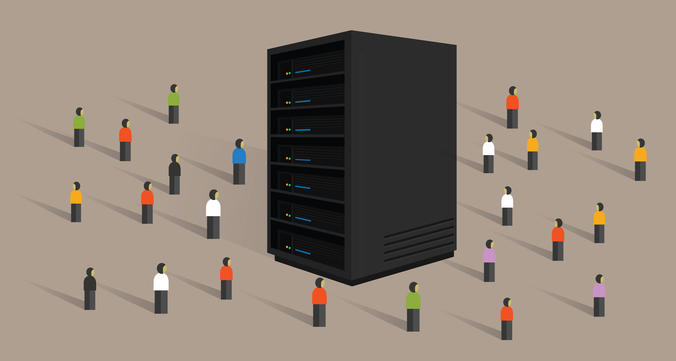
Most hosting companies offer several service packages. So rather than simply look at price, it’s better to consider what type of hosting you need. It all comes down to the technology you finally decide to go with, because it’s the main thing that influences factors like performance, security, scalability and the work you have to commit to on your end. One of the most popular hosting options for beginners is shared hosting.
The Benefits in a Nutshell
When you opt for a shared hosting account, your site is situated on a server with a number of other websites. How many websites you’ll share with a shared server will depend on your setup and hosting provider. But you’ll typically share your server with hundreds, even thousands of other sites.
Naturally, the biggest draw of a shared server arrangement is that you’ll share the cost of your server with hundreds or thousands of other people. This saves you money because the hosting provider can spread their operating costs over many clients. This is one reason why shared hosting often costs as little as $2 per month. If you’re just starting out or simply want to test the waters with a new website, a shared hosting account is one way to go. There’s also little you have to worry about when it comes to setups and configurations, which gives you the freedom to build your website.
The Downsides
Since you’re sharing the server with other users, you’re also limited in terms of performance and overall capabilities. Finite assets like hard drive space, CPU speed, and RAM must be divided by the number of users attached to a server. It stands to reason that if a handful of websites are drawing the lion’s share of a server’s processing power or disk space, the performance of your website will suffer. It’s a big pie with a lot of users, and you can only slice the pie so thin before others are left with crumbs. For new users, that can mean reduced loading speed for your website or even, heaven forbid, downtime where your site just won’t load. Some call this the “bad neighbor effect,” which is why shared hosting can be the most troublesome way to go for certain users.
Even if you have the best web security, if one of your neighbors experiences a security breach your site may be vulnerable, especially if the security of the entire server is compromised. What’s more, as the owner of a website, your site might get blocked or shut down if your ‘bad neighbor’ gets into legal trouble or commits a cyber-crime. If you’re only paying $5 per month, your web host may not be so eager to spend hours of support on your situation.
The Bottom Line
Shared hosting can be right for you if you don’t expect lots of traffic or if your site doesn’t have a ton of functionality. It’s also not bad if your site is in development or test, or for personal sites or those where up-time is not important. If you don’t have a big hosting budget, shared hosting is a great equalizer that lets you appear as big as many national e-commerce sites.



















